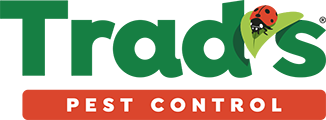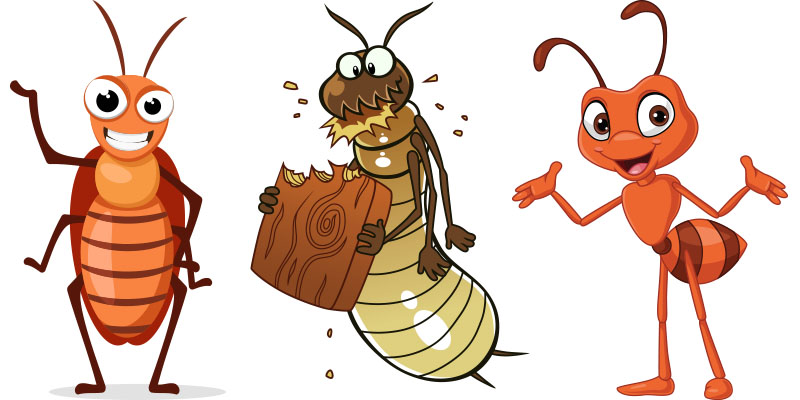Jacksonville, Florida, known for its lush landscapes and warm climate, is unfortunately also home to a variety of stubborn pests that can wreak havoc on homes and businesses. Among the most notorious pests in the Jacksonville area are termites, cockroaches, and ants, known for their resilience and ability to evade traditional pest control measures.
In the following article, we’ll explore the answer to the question: “What is the hardest pest to get rid of in Jacksonville, and why?” Well, termites, cockroaches, and ants top the list as some of the most challenging pests to treat, each presenting unique challenges for homeowners and pest control professionals alike. So, go ahead and join us as we look into the characteristics of these persistent pests, the reasons behind their resilience, and effective strategies for combating them in Jacksonville’s unique environment.
Whether you’re a homeowner or a business owner, understanding the complexities of pest management is essential for maintaining a pest-free environment and protecting your property from the damage these pests can cause. But, this isn’t easy for a whole host of reasons. Let’s begin with one of the most destructive pests known to property owners – termites.
Termites
Termites are notoriously difficult to get rid of in a house for a variety of reasons, including:
- Hidden infestations. Termites often establish colonies in hidden or hard-to-reach areas of a home, such as within walls, crawl spaces, or beneath flooring. This makes it challenging to detect their presence until significant damage has already occurred.
- Large colonies. Termite colonies can consist of thousands or even millions of individual insects, all working together to feed and expand the colony. Eliminating an entire colony requires targeting not only the visible termites but also the queen and reproductive members hidden within the nest.
- Persistent feeding habits. Termites feed continuously on wood and cellulose materials, causing structural damage to homes over time. Even if a portion of the colony is eradicated, surviving termites may continue to feed and cause further damage if not properly addressed.
- Adaptive behavior. Termites are highly adaptive creatures that can adjust their behavior in response to threats, such as changes in temperature, moisture levels, or pesticide exposure. This adaptability makes them difficult to control using traditional pest control methods alone.
- Reproductive capacity. Termite colonies include reproductive members capable of producing large numbers of eggs, allowing colonies to rapidly expand and replenish their numbers even after treatment efforts.
Overall, the combination of hidden infestations, large colony sizes, persistent feeding habits, adaptive behavior, and reproductive capacity makes termites exceptionally challenging to eradicate from a house. Effective termite control typically requires a comprehensive approach that includes regular inspections, targeted treatments, and ongoing monitoring to prevent future infestations. However, there’s another contender and it’s one of the most disgusting – cockroaches.
Roaches
Like termites, cockroaches are also notoriously difficult to get rid of in a home due to several factors, which include, but are not necessarily limited to the following:
- Rapid reproduction. Cockroaches reproduce quickly, with some species producing multiple generations in a single year. This rapid reproduction rate allows cockroach populations to grow exponentially, making it challenging to eliminate them entirely.
- Adaptability. Cockroaches are highly adaptable insects that can thrive in a wide range of environments, including homes, restaurants, and commercial buildings. They can survive on various food sources, including crumbs, garbage, and even organic matter found in drains and pipes.
- Resilience. Cockroaches are resilient pests that can withstand harsh conditions, such as extreme temperatures and limited food and water sources. They can also develop resistance to certain insecticides over time, making traditional pest control methods less effective.
- Nocturnal behavior. Cockroaches are primarily nocturnal creatures, meaning they are most active at night when homeowners are asleep or business owners are away. This nocturnal behavior can make it challenging to detect and eliminate cockroach infestations until they become severe.
- Hiding places. Cockroaches prefer dark, secluded areas to hide during the day, such as behind appliances, in wall voids, and underneath sinks and cabinets. Their ability to hide in hard-to-reach places makes it difficult to access and treat their hiding spots effectively.
- Food and water sources. Cockroaches are attracted to food and water sources commonly found in homes, such as crumbs, spills, and standing water. Even small amounts of food debris or moisture can sustain a cockroach population and attract new individuals to the area.
- Egg cases. Cockroaches produce egg cases containing multiple eggs, which are often hidden in cracks and crevices around the home. These egg cases can hatch into nymphs, further perpetuating the infestation even after adult cockroaches have been eliminated.
As you can see, the combination of rapid reproduction, adaptability, resilience, nocturnal behavior, hiding places, abundant food and water sources, and egg-laying capabilities makes cockroaches challenging to eradicate from a home. Effective cockroach control typically requires a comprehensive approach that includes sanitation, exclusion, baiting, and insecticide treatments targeted at both adult cockroaches and their offspring. Still, there is yet another pest that can also cause their fair share of problems – ants.
Ants
Unsurprisingly, ants can be difficult to eradicate in a residential property due to several reasons:
- Large colonies. Ant colonies can consist of thousands or even millions of individual ants, with multiple queens and satellite colonies. This large population size makes it challenging to eliminate all ants within a colony, as new ants can quickly replace those that are killed or removed.
- Versatile nesting sites. Ants are adaptable and can establish nests in various locations, including soil, and wall voids, beneath concrete slabs, and within structural elements of a building. Their ability to nest in hidden or hard-to-reach areas makes it difficult to locate and treat the colony effectively.
- Diverse species. There are thousands of ant species worldwide, each with its own nesting habits, food preferences, and behaviors. Some ant species may be more challenging to control than others, requiring specific treatment methods tailored to their biology and habits.
- Foraging behavior. Ants are constantly foraging for food and water, which can lead them to enter homes in search of resources. Once ants find a reliable food source, they will leave behind pheromone trails to attract other colony members, leading to persistent infestations.
- Seasonal variations. Ant activity may vary depending on the season, with increased activity during warmer months and reduced activity during colder months. Some ant species may also exhibit swarming behavior during certain times of the year, making control efforts more challenging.
- Resilience to treatment. Just like roaches, ants can develop resistance to certain insecticides over time, especially if the same products are used repeatedly. Additionally, ant colonies may fragment or relocate in response to treatment, making it difficult to achieve complete eradication.
- Environmental factors. Environmental conditions, such as temperature, humidity, and rainfall, can impact ant activity and nesting behavior. Changes in environmental conditions may affect the effectiveness of treatment methods and require adjustments to control strategies.
So, their complex social structure, versatile nesting habits, diverse species, foraging behavior, seasonal variations, resilience to treatment, and environmental factors contribute to the difficulty of eradicating ants from a residential property. Effective ant control typically requires a multifaceted approach that includes sanitation, exclusion, baiting, and targeted insecticide treatments tailored to the specific species and conditions present in the infested area.
If you suspect a problem with termites, roaches, or ants in your home or business, don’t hesitate to seek the help of a professional pest control service. Trad’s is here to assist you in any way we can – wherever you may encounter a problem. Just get in touch at your convenience and we’ll take care of any existing or potential issues!

